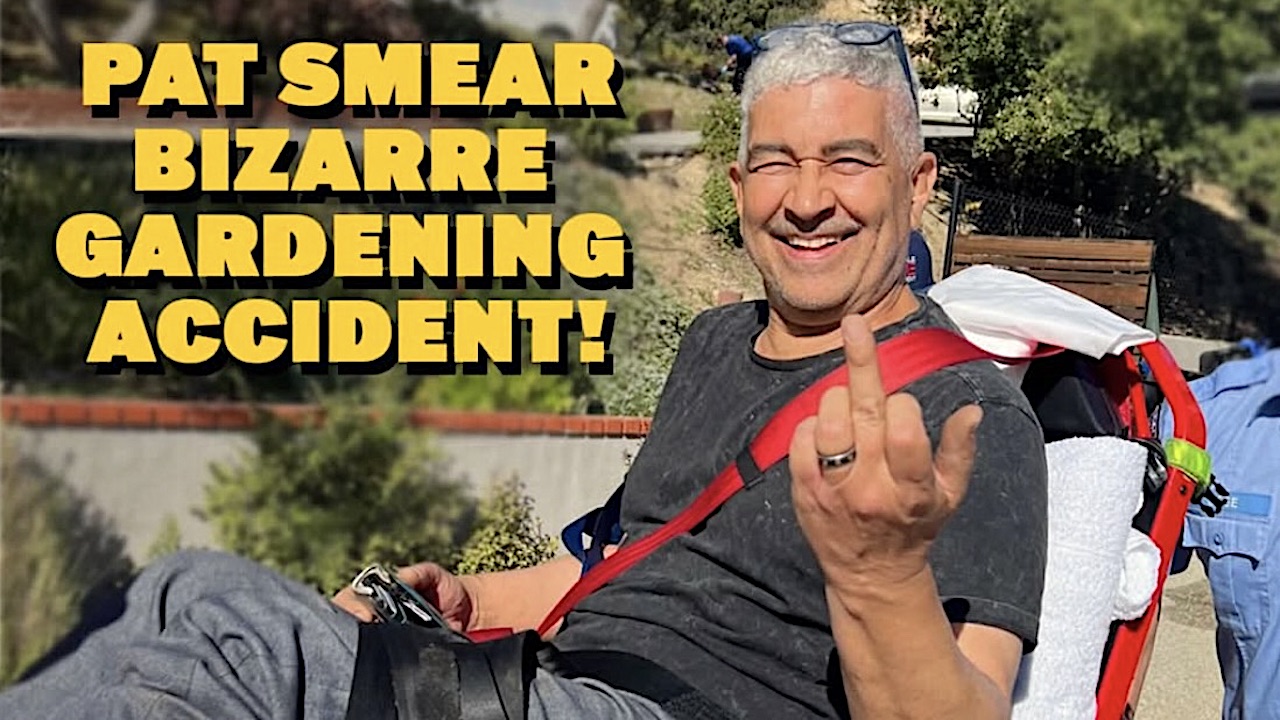The 50 greatest Pink Floyd songs ever
From underground clubs to sold-out stadiums, Pink Floyd's path through rock has been revolutionary and stunningly successful. Here are their 50 best songs
40. Arnold Layne
When Waters told Barrett about a knicker-stealing local pervert who had troubled his mother’s washing-line back in Cambridge, the bandleader dreamt up a slice of thoroughly English psychedelia, equal parts whimsical and sinister.
Barrett’s mannered vocal and Wright’s brilliantly smudged organ led the Floyd’s debut single to UK#20 – despite a partial radio ban.
“We can’t think what they’re so perturbed about,” sniffed Waters. “It’s a song about a clothes fetishist who’s obviously a bit kinked…”
39. The Final Cut
Cast into the ‘rubbish library’ during Wall sessions, the title track of the Floyd’s great 1983 breakup album was openly hated by Gilmour (“I said to Roger, ‘If these songs weren’t good enough for The Wall, why are they good enough now?’”).
But heard today, The Final Cut stands as one of rock’s most beautiful suicide notes, Waters’ bereft vocal bristling the neck hair as the music unfolds like a lost cousin of Comfortably Numb. In later years, even Gilmour would come around, citing it as one of the album’s three decent songs.
38. Careful with That Axe, Eugene
The seeds of Careful With That Axe, Eugene can be traced back to a couple of instrumental variants in the 12 months before it was officially released, namely Keep Smiling, People and Murderistic Woman. It would go through two more modifications later, firstly as Beset The Creatures Of The Deep and then, with a choir, as Come In Number 51, Your Time Is Up, for the soundtrack of 1970’s counterculture film Zabriskie Point.
The original studio version is a sublime improv jam, anchored by Waters’s bass. Wright’s organ lines meander freely, while Gilmour adds tasteful guitar. The song’s innate trippiness is further accentuated by the use of its title as a whispered motif, followed by Waters’s bedlam scream. This feels like a model of restraint, however, compared to the more voluble nine-minute live take on Ummagumma.
Sign up below to get the latest from Classic Rock, plus exclusive special offers, direct to your inbox!
37. Pigs On The Wing (Parts 1 & 2)
Even measured against the prevailing punk scene, 1977’s Animals was spitting-mad. Strange, then, that the Floyd’s brutal swipe at Britain’s social order should open – and close – with the purest love songs that Waters ever wrote, serenading new girlfriend Carolyne Anne Christie on acoustic guitar.
“There was a certain amount of doubt as to whether that song was going to find its way onto the album,” considered the bassist. “But otherwise, it would just have been a sort of scream of rage."
36. Fearless
A country strum in open G, Meddle’s third track was quickly left behind by the band (it was never played live). Yet Gilmour’s propulsive guitar work stands up – and it was no small feat of production to splice the Liverpool Kop’s chant of You’ll Never Walk Alone into the outro.
“Fearless is still the one that everyone in Liverpool plays,” recalls engineer John Leckie. “Not just for the football chant, but those churning acoustic guitars. That’s the one that The La’s and all those bands tell you is the classic Pink Floyd track.”
35. Another Brick In The Wall (Pt. 3)
For Wall protagonist, Pink, the final entry in the trilogy was a violent rejection of all around him – or as Waters told DJ Tommy Vance in 1979, the character “convincing himself that isolation is a desirable thing”.
Nihilism dripped from the lyric (“I don’t need no arms around me/And I don’t need no drugs to calm me”), while most biting was the kiss-off, accusing us all of being complicit (“All in all, you were all just bricks in the wall”).
- The best bluetooth speakers you can buy right now
- Best headphones 2020: supercharge your music listening
- The best budget wireless headphones: wire-free and wallet-friendly
34. Sorrow
Borrowing his opening gambit from John Steinbeck’s The Grapes Of Wrath, Gilmour had penned the Sorrow lyric before the music (“Which is rare for me”).
Yet the song’s stalking groove soon followed, spilling out during a weekend on the guitarist’s Astoria houseboat – and iced with an outro solo that’s arguably the best of the late period. For Gilmour, it was the proof of a viable future without Waters: “That, for me, was the moment when I thought we were all in the clear.”
33. Atom Heart Mother
The title track to Pink Floyd’s first Number One album grew out of a chord sequence that Gilmour had written. “It sounded like The Magnificent Seven to me.” When Waters heard it he thought it had a “heroic plodding quality” that was worth pursuing. “We sat and played with it, jigged it around, added bits and took bits away, farted around with it until we got some shape to it,” Gilmour remembers.
At this point the piece was called The Amazing Pudding and the band road-tested it on their British and European dates at the beginning of 1970. They decided it would benefit from orchestral arrangements and a choir, so they brought in Ron Geesin, a classically trained musician who had worked with Waters on the Music From The Body soundtrack. The band played him the basic tape of the rhythms and chords, made a few suggestions and headed off for an American tour, leaving Geesin to it.
“It was a 25-minute piece, which was a hell of a lot of work,” says Geesin. “Nobody really knew what was wanted. And none of them could read music.” The band returned in time for the recording session. But nobody had thought to hire a conductor. Geesin volunteered for the job despite never having conducted an orchestra before. It was, he now admits, a mistake. “They were hard, uncaring types who weren’t going to tolerate anyone green or naïve.” Geesin, of course, ticked both boxes. He was put out of his misery when choirmaster John Aldiss showed up, realised what was wrong and took over.
The piece only got its proper title when it was about to be played on The John Peel Show. Waters saw the headline Atom Heart Mother in the Evening Standard above a story about a pregnant woman with an atomic pacemaker. And when designer Storm Thorgerson’s “totally cow” cover was accepted, the band gave some of the section titles a bovine twist, like Breast Milky and Funky Dung.
32. Is There Anybody Out There?
A drop of pure atmosphere on The Wall’s original Side Three, Waters’ unsettling collage fused old TV Western dialogue, doomy synth, sirens and a repeated plea (“Is there anybody out there?”) that sounded like a hopeless transmission from the last survivor of some cataclysmic event.
It was almost a relief when guest classical guitarist Joe DiBlasi punctured the claustrophobia with his Bond-goes-flamenco passages (“I could play it with a leather pick,” shrugged Gilmour, “but couldn’t play it properly fingerstyle”).
31. Interstellar Overdrive
When The Piper At The Gates Of Dawn arrived in August 1967 it was hard to square Pink Floyd’s debut album with the free-form, acid-laced freak-outs that had made the band’s name on the London club scene. With Abbey Road sessions produced by Norman Smith – a sometime jazz man who openly admitted that psychedelia “didn’t interest me” – Syd Barrett’s ragged chaos had been cut, buffed and tamed into a more palatable brand of art-pop.
Only once on the tracklisting were the band given free rein to indulge what manager Peter Jenner called “the weird shit”, opening Side Two with the 10-minute, semi-improvised instrumental Interstellar Overdrive. Though officially credited to all four, the tune had been initiated in early 1966, when Barrett heard Jenner attempting to hum Love’s cover of My Little Red Book and filled the gaps on guitar. “I’m not the world’s greatest singer,” reflected Jenner. “He played back a riff on his guitar, said: ‘It goes like this?’ And of course it was quite different, because my humming was so bad.”
Born from that happy accident, Interstellar Overdrive became a live staple, opening the Floyd’s UFO club sets, where it would frequently sprawl into a half-hour odyssey. Arriving at Abbey Road, the band set out to bottle that visceral live approach, playing at volumes that reportedly destroyed four microphones. As staff engineer Peter Bown recalled: “I opened the door and nearly shit myself. By Christ, it was loud. I thought: ‘How the fuck are we going to get this on tape?’”
Current page: The 50 greatest Pink Floyd Songs: 40-31
Prev Page The 50 greatest Pink Floyd Songs: 50-41 Next Page The 50 greatest Pink Floyd Songs: 20-21
